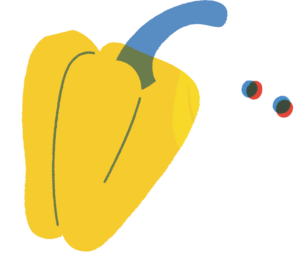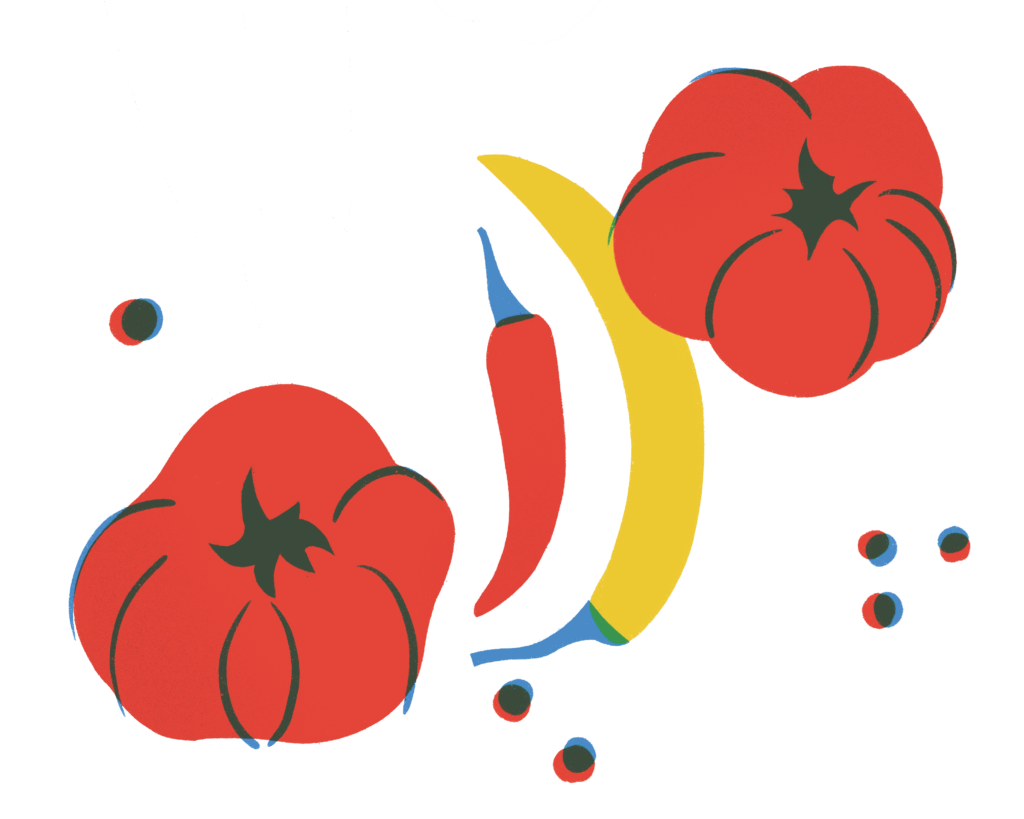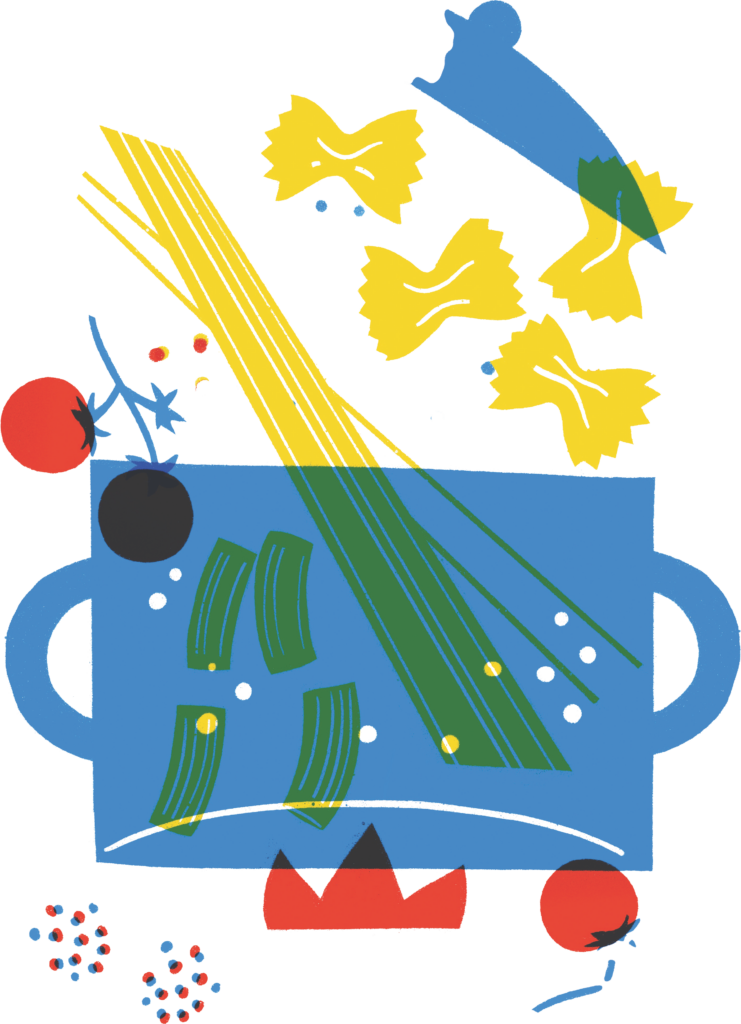I pulled into the driveway of a ranch-style home in the suburbs of Chicago, trying not to hit the chickens that wandered all around the yard. The home was halfway between the Glenn Ellyn Community Center, where I taught weekly children’s ballet classes, and the campus of Wheaton College, where I lived. Once I pulled around back, though, I could nearly forget I was right in the middle of town. I walked through the creaking back door with two empty, half-gallon mason jars, where a stern farmer greeted me with a grunt. He pulled pitchers of fresh, raw milk from the fridge and poured them into my jars. Each state has its own rules around the sale of raw milk, and its own way of working around those rules — somehow bringing the jars myself made it not illegal in Illinois.
Every Thursday afternoon I followed the same routine. On Friday mornings I got to work in my college apartment kitchen. I skimmed off the cream that rose to the top of each jar — some I’d ferment into sour cream and some I shook into butter. With the milk that was left, I made a big batch of yogurt and the rest I’d drink on its own. Along with the many forms of home-processed dairy, I had a crock of continuously brewing kombucha and a variety of homemade ferments: sauerkraut, whey lemonade, and more. My deodorant was made of cocoa butter and baking soda, and my hair I washed with baking soda and apple cider vinegar. It was never quite clean, exactly, but everything that touched it was supposedly pure.
It was 2012 and the options for “clean” foods and “clean” cleaning and “clean” hygiene products were more limited than they are today. Plus I was on a student’s budget, so everything was necessarily homemade.
Then, one day, I cracked. I didn’t have the energy to mix up another stick of deodorant, and I knew I’d never catch the attention of my crush with my hair looking the way it did — at least not the kind of attention I desired.
Is the conventional stuff really all that bad? I began to question. Does living like this actually feel all that good?
At 22 years old, hungry and exhausted by the limitations of my own body, I was determined to sort through the competing messages I read about health and environmental sustainability. I believed that if God was the creator of all, including our bodies as well as the plants and animals that sustain them, and God was truly good, then I would be able to find the dietary plan that best cared for my body and the soil and the creatures that fill the earth and seas, and that it would taste good, too.
The quest for this theological dietary plan took me to work in the restaurant industry, to graduate school for degrees in both food studies and theology, and finally to writing books about theology and food.
What I did not find was a dietary plan that would fix me.
Today, I open Instagram and I see the message that once so compelled me now heralded by beautiful women in cozy homes. They are not bound by the limitations of student budgets or busy schedules or shared apartments. They offer a life seemingly freed from the confines of human limitation, of hunger and desire. You too can heal your body, heal your mind, even heal your soul, if only you cut out the terrifying toxins of the day, they say.
Just as quickly I see another digital guru encouraging me in the opposite direction: “Health is a social construct,” she says. She writes as if there is no truth at all to the message that food has healing power, or that food can cause harm. We need only free ourselves from the societal messages that weigh us down.
These competing narratives overwhelm me, even with the training to see right through their flaws. I can’t imagine the exhaustion they incite in others.
A Grounded Theology of Eating
Sometime in my mid-20s, between my food studies and theology degrees, I stopped searching for the right way to eat. Instead, I learned to relate to food in terms of story. Food tells a story of creation at once broken and redeemed, a story that mirrors the complex reality of how we live in and engage God’s good world.
The Gospel of Luke speaks of even the rocks crying out in praise of God. What I’ve found is that even the gluten in bread and the microbes that leaven it, the microbes that ferment dairy into yogurt and sour cream and cheese, the soil that sprouts forth plants as well as thistles and thorns — all of it tells stories of the magnificence of our creator and the creatures that have walked this earth for generations. The rocks and trees and microbes all cry out, but we’ve distracted ourselves too much to listen.
In the opening pages of Scripture, God creates humanity with two basic needs: the need to draw nutrition and energy from food, and the need to share life with other humans. God could have made us like the plants, capable of drawing nutrients out of the soil through our feet or of converting energy from the sun through our skin. But instead, God gave us a tongue filled with taste buds and a nose that picks up on even the subtlest notes in a cup of coffee, a glass of wine, or a piece of bread.
God made the process of meeting our nutritional needs delicious, a means of delighting in the world he made. God also made it an act that reminds us continuously of our need for others and draws us into relationship with them.
In the rhythmic movement of Genesis 1, God creates and calls good, creates and calls good. Then, suddenly, the rhythm halts. God creates humanity and says it is not good — that a human being should not be alone. In response, God creates a companion with whom Adam can share the joy of caring for and delighting in God’s creation.
Every time we eat, we are reminded that we are not autonomous individuals. The production of our food requires the work of gardeners and farmers, of cooks and grocery clerks, of ants and earthworms and microbes and bees.
But God also gave these humans a restriction on what they were allowed to eat: They could not eat of the Tree of Knowledge of Good and Evil. When temptation overcame them and they ate the forbidden fruit, God declared that the soil would sprout forth thistles and thorns.
By the sweat of your brow, you will eat your bread.
Throughout the whole of human history, we have been learning to live within the limitations of a broken but beautiful creation. Our ancestors developed delicious and creative cuisines out of the need to eat, and the desire to eat well, in the face of famine or flood. Technological innovation has attempted to mitigate the intensive labor required to produce food at scale. The results have at once kept people fed and depleted the soil. They have allowed much of the population to spend their days away from the kitchen and fields — pouring our energy into other creative, less physically intensive pursuits — while also supplying us with foods that are harmful to our health.
It is impossible to separate these innovations into categories of wholly bad or wholly good. They all, at once, offer both benefits and downsides. Just as every bite of food reminds us of our reliance on others, it also serves as a reminder that we live in the tension of a good but broken creation. We cannot eat our way into the world’s redemption, but we can pay attention to the stories our food tells.
How to Pay Attention
Even though we wrestle against the brokenness of this world, and we will do so until the new creation, we can still see the handiwork of God woven into every crevice.

In Robert Farrar Capon’s 1967 book The Supper of the Lamb, he spends an entire chapter guiding readers through a practice of peeling and cutting an onion. The practice is intended to slow the reader down and to help them identify the beauty in each layer of the allium. “You must firmly resist the temptation to feel silly,” Capon instructs as he prepares the reader to observe the spires within the spires that create the onion. I know professors who have guided students through the exercise in class, readers who have used it as their own spiritual practice. In something as simple and mundane as an onion, they find, there is a story of God’s creativity — if only they slow down and pay attention. “You have caught the hint that a thing is more than the sum of all the insubstantialities that comprise it,” Capon writes. “God likes onions, therefore they are.”
As a baker, I find the same depth of meaning in mixing up a batch of dough. The development of gluten is nothing short of a testament to the creativity of God. When wheat flour is baptized in water, the proteins inside unravel and form bonds that fundamentally change the structure of the wheat. Those bonds are born of the tension between the opposing qualities of the two proteins: glutenin and gliadin. And that tension is what captures the carbon dioxide that grows the dough. The entire process of baking bread is a process of balancing tension and rest, of slowing down and allowing transformation to take place. When this work is sped up, the result is a bread that is bland, poor in texture, and hard to digest.
My farmer friends find similar fascination in the creation of compost and in seeds sprouting out of the soil — both necessarily slow processes that reveal the miraculous nature of our food. And my chef friends are awed by the marbling of fat in a cut of beef, and the ways fat, salt, and acid harmonize to elevate the flavors of a dish. It’s a reality that can only be appreciated when eaters take the time to enjoy what’s on their plate.
The greatest threat to this form of attention is not busyness — though that can make it difficult — rather it is the uniquely American mode of relating to food as, first and foremost, fuel. When our need to eat is used as an opportunity to quantify or to optimize, as a mystery we must solve to transcend human limitation, we lose the ability to appreciate food as the delicious gift it is. We lose its ability to guide us into deeper relationships with one another, with this created world, and ultimately with our creator, too.
Finding Joy within Limitation
I am an advocate for slowing down. I want people to use their time in the kitchen and around the table as a time to celebrate the goodness of God. I hope perhaps you are encouraged toward a more thoughtful, compassionate relationship to food. For some, that might look like baking sourdough bread and shaking raw cream into butter.
 At the same time, I value the limitations placed on us as human beings — limitations of time, of energy, of money. I see these limitations not as something to transcend but something to remind us of our creatureliness. We are human, not divine. And in our humanity we live in constant awareness that, for many, eating is as much a source of stress as it is of joy. After all, we live in the tension of creation at once broken and redeemed.
At the same time, I value the limitations placed on us as human beings — limitations of time, of energy, of money. I see these limitations not as something to transcend but something to remind us of our creatureliness. We are human, not divine. And in our humanity we live in constant awareness that, for many, eating is as much a source of stress as it is of joy. After all, we live in the tension of creation at once broken and redeemed.
My favorite part of Capon’s chapter on the onion is a small, almost throwaway detail near the beginning. Just before instructing the reader to spend an hour probing a single onion, he tells the reader to grab three to four.
There is goodness woven into every fiber of creation, and when we slow down to pay attention it is marvelous what we can see. And also, at the end of the day, it takes a lot of onions to feed a crowd. We do not have the capacity to navigate life paying constant attention to all the stories it tells of its creator. Those stories are so numerous we cannot grasp them all. The attention we pay to the food at hand — as good as it might be — always comes at the cost of attention due somewhere else: attention to hungry children or to the guests about to walk through the door.
Food is at all times a reminder of the goodness and the brokenness of this world, a reminder of our human needs and limitations, of our reliance on others to thrive. To honor God with our eating, we do not need to strive for a dietary plan that can liberate us from these realities. To do so forces us to ignore the giftedness of the food itself. To repeat the words of Capon, “A thing is more than the sum of all the insubstantialities that comprise it. … God likes onions, therefore they are.”
In every moment, whether marveling at an onion as its starches and proteins caramelize or praying through the movements of shaping bread or throwing fish sticks into the microwave for a hungry child or accepting the gift of a meal from friends, our need for food draws us into relationship and reminds us we are human. Whether or not we can see it, every time we eat we are invited to taste the goodness of God.